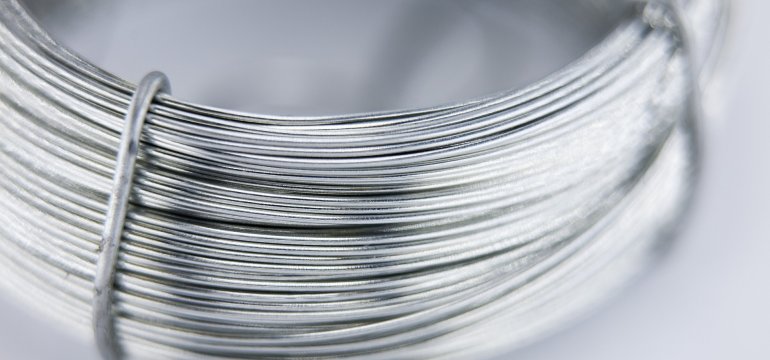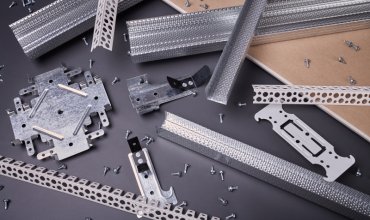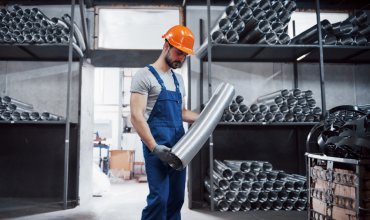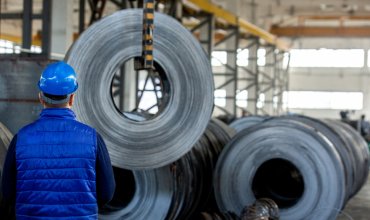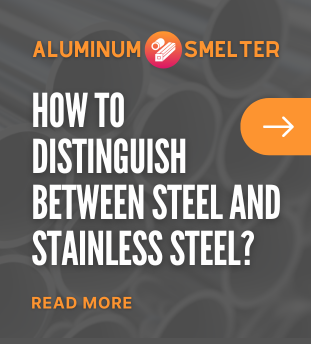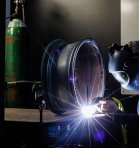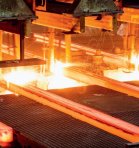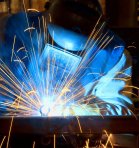Often underestimated compared to other metallic materials, aluminum plays a key role in many industrial sectors. We are increasingly seeing applications for the metal in everyday life, which makes it worth understanding why choosing aluminum is so beneficial. While many people associate aluminum mainly with beverage cans, its range of uses is much broader. This article aims to provide a detailed overview of the advantages of aluminum and explain why it is so valued in various industries. From the point of view of the Polish market, this metal offers many advantages that could revolutionize our approach to construction, technology and sustainability.
Physical and chemical properties of aluminum
One of the most important advantages of aluminum is its unique physical and chemical properties. Aluminum is a lightweight metal, making it ideal for applications where weight is critical. Compared to other metals, such as steel, it is a much lighter material, which translates into energy savings during transportation and assembly.
In addition, aluminum has excellent corrosion resistance. Thanks to the natural oxide layer that quickly forms on its surface, it is protected from the effects of moisture and other atmospheric agents. This characteristic makes it an ideal material for outdoor applications, such as building structures and infrastructure components.
Aluminum is also very good for machining. It can be easily formed, shaped and welded, making it a versatile material for manufacturing processes. These properties make it extremely popular in industries such as automotive, aerospace and packaging.
Another important characteristic is electrical and thermal conductivity. Aluminum is an excellent conductor of electricity, which is why it is often used in the power industry, such as in transmission lines. Its ability to conduct heat also finds application in the manufacture of heat sinks and other cooling elements.
Economic and environmental advantages
Theadvantages of aluminum are not limited to its physical and chemical properties. Its cost and availability are also important aspects. Aluminum is the third most abundant element on Earth, making its resources virtually unlimited. In Poland, as in the rest of the world, aluminum production is relatively cheap, which translates into lower costs for finished products.
One of the most environmentally friendly aspects of aluminum is its ability to be recycled again and again. This process requires only about 5% of the energy needed for primary production, significantly reducing its carbon footprint. In terms of environmental protection and sustainability, aluminum is a material with enormous potential. In Poland, there is an increasing emphasis on a closed-loop economy, and aluminum recycling fits in perfectly.
Thanks to its durability and lightness, aluminum also contributes to energy savings in the long run. For example, cars made of aluminum are lighter, leading to lower fuel consumption. The use of the metal in construction can also contribute to better thermal insulation of buildings, which helps reduce heating and cooling costs.
Applications of aluminum in the construction industry
In Poland, as well as around the world, aluminum has found extensive use in the construction industry. Its lightness, strength and corrosion resistance make it ideal for creating a variety of structures. From building facades, to windows and doors, to load-bearing structures, aluminum is irreplaceable here.
Facades and elevations made of aluminum are not only aesthetically pleasing, but also functional. Thanks to their resistance to weather conditions, they can maintain their appearance and functional properties for many years without the need for costly repairs or maintenance. In Poland, where changing weather conditions can be a challenge, aluminum performs well.
Aluminum is also an excellent material for windows and doors. Its light weight makes it easy to install and transport, while providing high strength and resistance to mechanical damage. Aluminum windows and doors also have excellent insulation properties, helping to reduce heat loss in buildings.
One of the more innovative advantages of aluminum in construction is the ability to create complex shapes and structures. Current technologies make it possible to precisely shape this metal, which opens up new possibilities in design and architecture. Thanks to this, architects and engineers have a tool that allows them to realize the most ambitious projects.
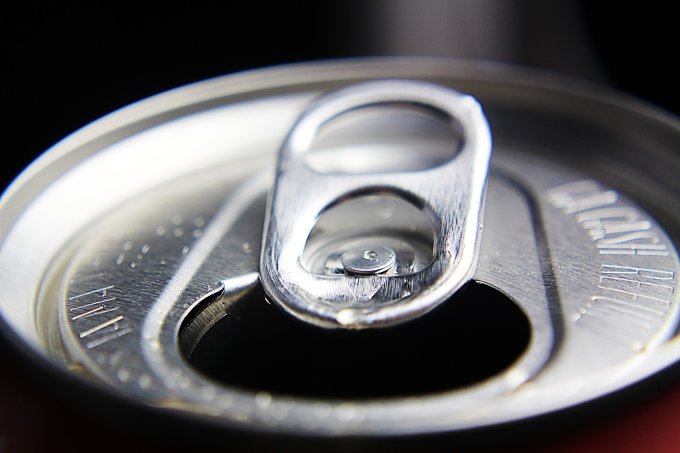
Aluminum in automotive and transportation
One of the most important sectors where the advantages of aluminum are particularly evident is the automotive and transportation industries. Aluminum has helped revolutionize the design of cars, airplanes and even bicycles. Its lightness and strength are key to improving the energy efficiency of vehicles and enhancing their performance.
In cars, aluminum is used for engines, bodies, suspensions and many other components. Lighter vehicles use less fuel, resulting in lower CO2 emissions and lower operating costs. Reducing the weight of cars without sacrificing strength and safety is one of the main benefits of aluminum.
Not only cars, but also airplanes benefit from this versatile material. In aviation, where every gram is at a premium, aluminum plays a key role. Using aluminum in aircraft construction allows for increased payload, range and fuel efficiency. This is particularly important in the context of global efforts to reduce emissions and shift to more sustainable forms of transportation.
Also in the bicycle industry, aluminum is the preferred material. Bicycles made of aluminum are lightweight, which improves their maneuverability and comfort. Due to their strength and corrosion resistance, these bicycles are also more durable, which contributes to a longer product life.
Public transportation also benefits from the use of aluminum. From the lightweight construction of railroad cars to the components of streetcars and buses, this metal allows for the creation of more advanced and efficient means of public transportation. In Poland, where the development of rail and urban infrastructure is crucial for sustainable development, the advantages of aluminum cannot be overlooked.
The future of aluminum: innovation and research
Aluminum is the material of the future, and it is gaining ground through constant innovation and research. In laboratories around the world, scientists are constantly working to improve the properties of aluminum and discover new applications for this versatile metal.
One direction of research is improving the mechanical properties of aluminum. Thanks to modern technologies and additives, such as alloys with other metals, it is possible to achieve even greater strength and resistance to extreme conditions. This opens up new opportunities for industry, especially in sectors where high-strength materials are required, such as aerospace and military applications.
Innovation in aluminum production processes also plays a key role. New manufacturing methods, such as 3D printing technology, are making it possible to create more complex and precise components from aluminum. This is particularly important in medicine, where precision components can be used to manufacture implants and other advanced medical devices.
Aluminum recycling is another area where intensive research is underway. Although aluminum is already one of the materials with the highest recycling rate, researchers are striving to make the process even more efficient. Modern recycling technologies can significantly reduce costs and further reduce environmental impact.
There is also a lot of research into new applications for aluminum in Poland. Cooperation between science and industry is key to discovering innovative solutions that can benefit many sectors of the economy. The growing interest in this material and its advantages means that aluminum has a bright future.
Summary
Aluminum is a metal with numerous advantages that make it an extremely versatile and valuable material in many industrial sectors. Its lightness, strength, corrosion resistance and excellent mechanical properties make it an ideal choice in construction, automotive, aerospace, as well as many other fields.
Theadvantages of aluminum are not limited to its physical properties. Its production is economically viable, and its ability to be recycled several times makes it an environmentally friendly material. Innovation and research into new applications for aluminum are opening up even more possibilities for the future of this metal.
In Poland, where aluminum is gaining popularity, its applications are contributing to the development of a sustainable economy and technology. Whether it is used in construction, automotive or other sectors, aluminum's advantages make it worth choosing and investing in its future.


